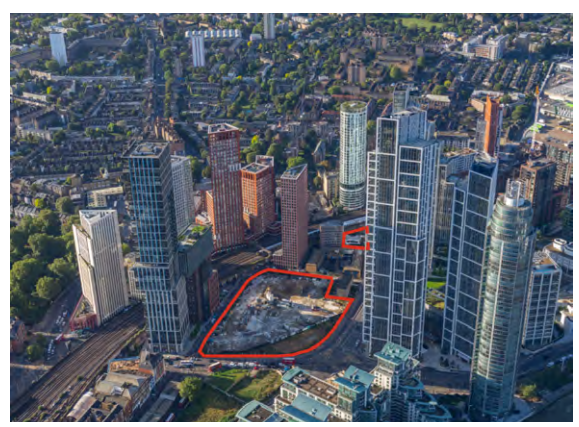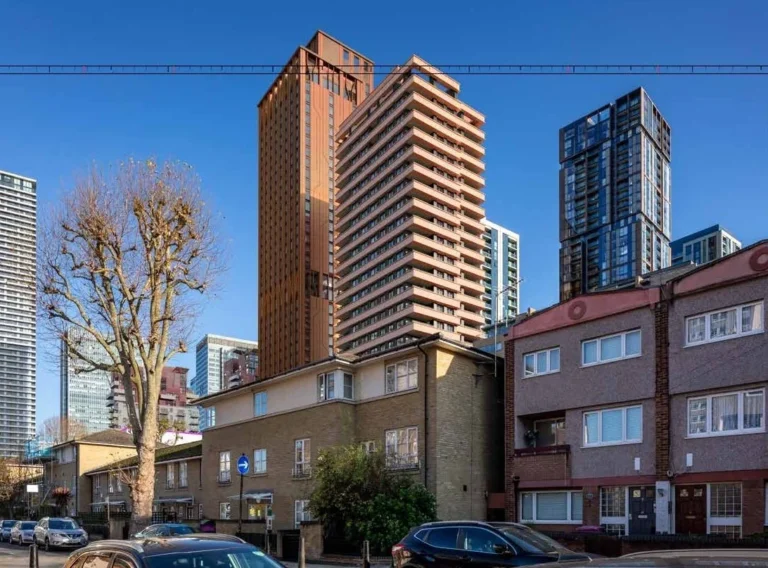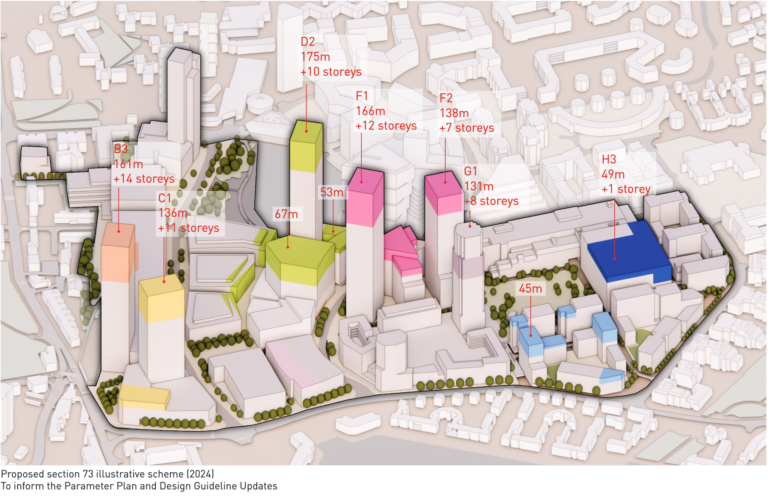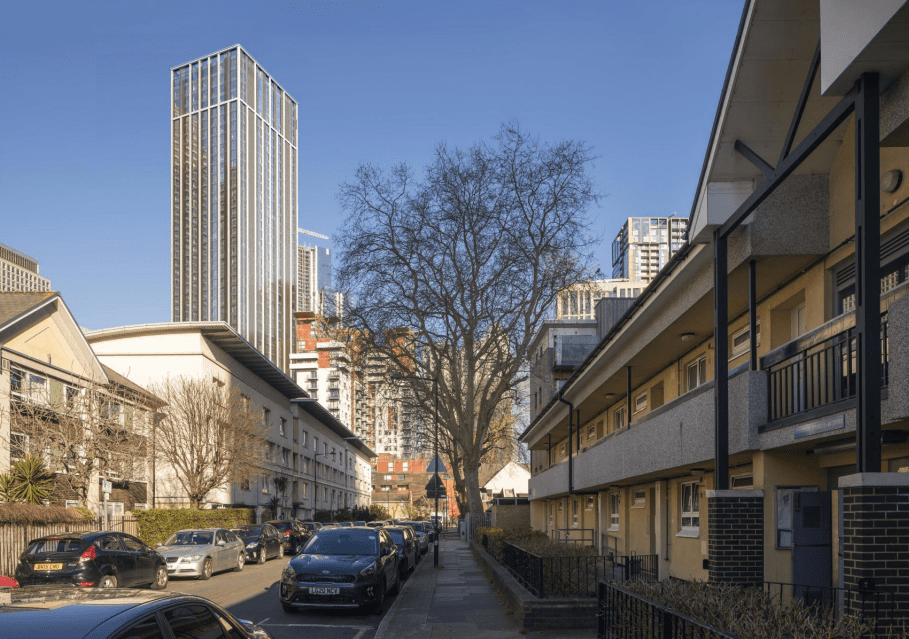
The proposed scheme, image credit Millerhare.
Proposals for a 795 unit residential tower have been submitted for planning consent, in the east London borough in South Quay.
Plans submitted by the applicant Iliona Ltd by developer Olympian propose the redevelopment of 56-58 Marsh Wall.
The site is approximate of 0.217Ha is currently occupied by a three-story office building and associated car parking and sits in close proximity to Canary Wharf.
The proposed space on the first floor would comprise the co-living communal floorspace, including
a lounge, cinema, gym, exercise studio, and wellness unit.
There are three typical floor plans for level 2 to level 42 representing a ‘cluster’ of co-living space. The cluster would comprise three individual floors, which would include either a kitchen space, living space, or dining space.
There is an exception to this located on level 41 and level 42, which would comprise two individual floors and include kitchen space, living space, and dining space with each level comprising 19 co-living units.
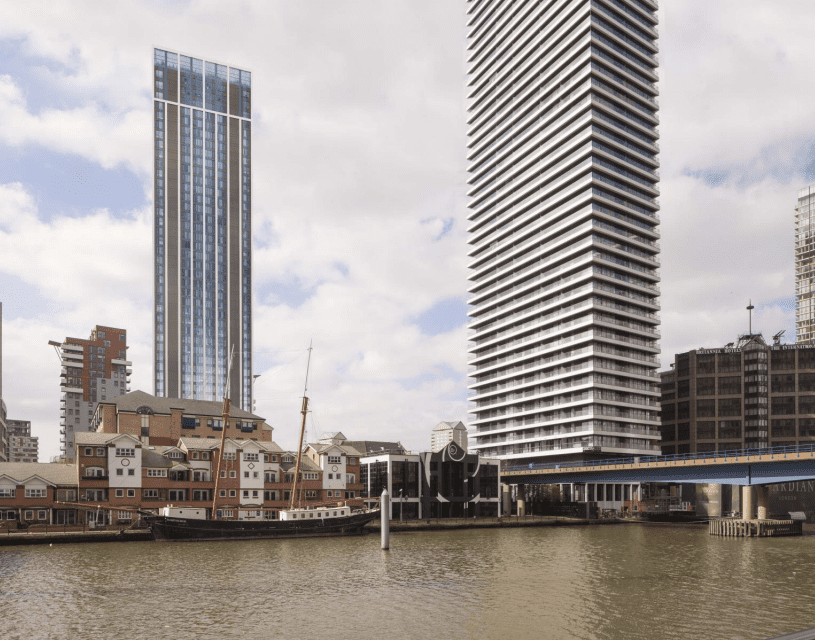
Plans have been drawn up by project architects Rio Architects founded in 2000, which up until this point have been appointed to student residential schemes almost exclusively in large university cities.
The scheme if built would be situated nearby to South Quay station, served by the Docklands Light Railway, and would be within 15 minutes of a station on the Jubilee Line and a fully operational Elizabeth Line when the scheme is expected to be completed by 2026.
This consequently makes the scheme a car-free scheme and will only provide secured bike parking at the basement level.
Proposals from the developer which cut their teeth in student residential developments would be the second co-living development for the rapidly densifying inner east London suburb following the opening of Collective Canary Wharf in the late 2010s.
Research published by Savills outlines the surge in demand for co-living, which has fulled by those looking who can afford a median one-bed flat but instead opting for a cheaper unit with less space as it is closer to opportunities to live closer to places of employment and amenities.
They estimate the potential size of the ‘core target market’ for Co-living across the UK to be c.725,000 units. Within that, London accounts for nearly 160,000 units – around 22% of the total market.
Plans were submitted by the applicant in March, with a planning decision by Spring/Summer 2023.
